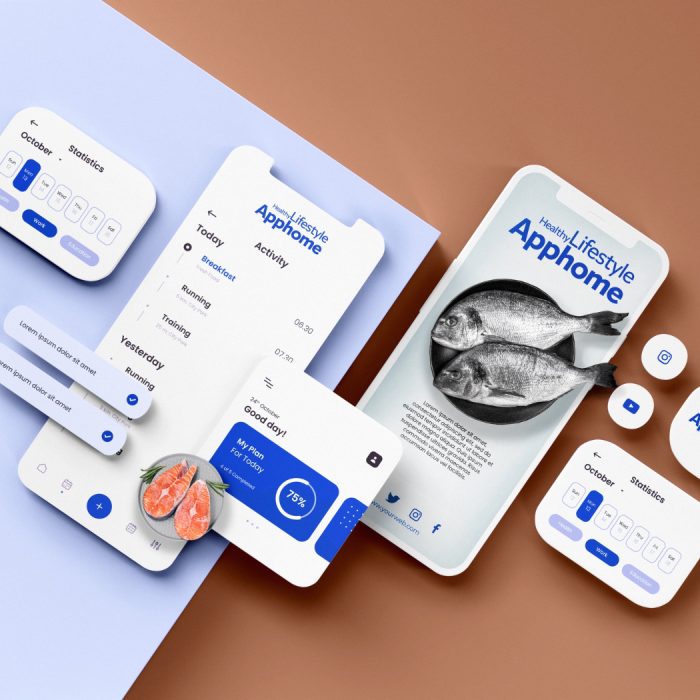In the modern business landscape, digitization is no longer optional—it’s essential. One of the most effective ways to achieve this transformation is through mobile apps. As technology continues to advance with innovations like AI, machine learning, and the Internet of Things, mobile apps are becoming increasingly integral to business operations, enhancing both customer experience and business outcomes.
The Role and Benefits of Mobile Apps
Mobile apps serve a multitude of purposes, from connecting people to providing entertainment and boosting productivity. Let’s explore some key reasons why businesses should consider integrating mobile apps into their strategies.
Enhancing Customer Experience
Mobile apps provide businesses with a direct channel to their customers, allowing for personalized interactions and seamless service delivery. Unlike websites, which can sometimes be cumbersome to navigate on mobile devices, apps offer a streamlined experience tailored specifically for smartphones and tablets. This ease of use can significantly improve customer satisfaction and loyalty.
Empowering Customers with Information
In today’s information-driven world, customers expect to have access to information at their fingertips. Mobile apps are powerful tools for educating customers about products, services, and industry trends. Whether it’s through interactive features, real-time updates, or push notifications, apps keep customers informed and engaged with your brand.
Providing Entertainment and Engagement
The entertainment value of mobile apps cannot be understated. Whether through gaming, streaming, or interactive content, apps offer a form of engagement that can keep users coming back. For businesses, this means increased customer interaction and brand exposure. Apps like Spotify, Netflix, and various mobile games have set the standard for entertainment on the go.
Facilitating Social Connections
In an era where social interaction is increasingly digital, mobile apps provide the platforms needed to stay connected. Social media apps like Instagram, Twitter, and LinkedIn allow businesses to engage with customers, build communities, and enhance their brand’s visibility. Even beyond social media, apps with integrated communication features can help businesses maintain strong relationships with their clientele.
Boosting Productivity
For business owners and employees alike, mobile apps can drastically improve productivity. Apps designed for project management, communication, and task tracking enable teams to work more efficiently, even when they’re not in the office. For example, apps like Slack, Asana, and Trello have become indispensable tools in many workplaces, allowing teams to stay organized and on track.

The Development process of Mobile Apps
Creating a mobile app involves several crucial steps, each contributing to the final product’s success. Understanding this process can help business owners make informed decisions when developing an app for their brand.
1. Conceptualization and Planning
Every successful app starts with a clear idea. Business owners must identify the app’s purpose, target audience, and key features. This stage involves brainstorming and research to ensure the app will meet customer needs and align with business goals.
2. Designing the User Experience
Once the concept is solidified, the focus shifts to designing the user experience (UX). This involves creating wireframes and prototypes that map out how users will interact with the app. A well-designed UX ensures that the app is intuitive, easy to navigate, and visually appealing.
3. Choosing the Right Technology
The technology used to develop the app is just as important as the design. Business owners must decide whether to build a native app (designed for a specific platform like iOS or Android) or a cross-platform app (compatible with multiple platforms). This decision will affect the app’s performance, user experience, and development cost.
4. Development and Testing
The development phase involves writing the code that brings the app to life. This is followed by rigorous testing to ensure the app functions smoothly and is free of bugs. Testing is crucial for delivering a high-quality product that meets user expectations.
5. Launching and Marketing the App
After the app is developed and tested, it’s ready for launch. This involves submitting the app to the relevant app stores and promoting it to your target audience. A well-executed marketing strategy can drive downloads and increase the app’s visibility.
6. Continuous Improvement and Updates
The work doesn’t stop once the app is launched. To keep users engaged and satisfied, it’s important to continuously monitor the app’s performance, gather feedback, and release updates. This ongoing process ensures the app remains relevant and valuable to users.
The impact of Mobile Apps on Business Growth
Mobile apps have the potential to significantly boost business growth. By providing a direct line of communication with customers, apps can enhance customer loyalty and increase sales. They also offer valuable data insights that can inform business strategies and help companies stay competitive in a fast-paced digital environment.
In conclusion, mobile apps are not just a trend—they are a powerful tool for business owners looking to innovate and stay ahead in today’s market. Whether you’re looking to improve customer experience, increase productivity, or simply engage your audience in new ways, a well-designed mobile app can be a game-changer for your brand.
